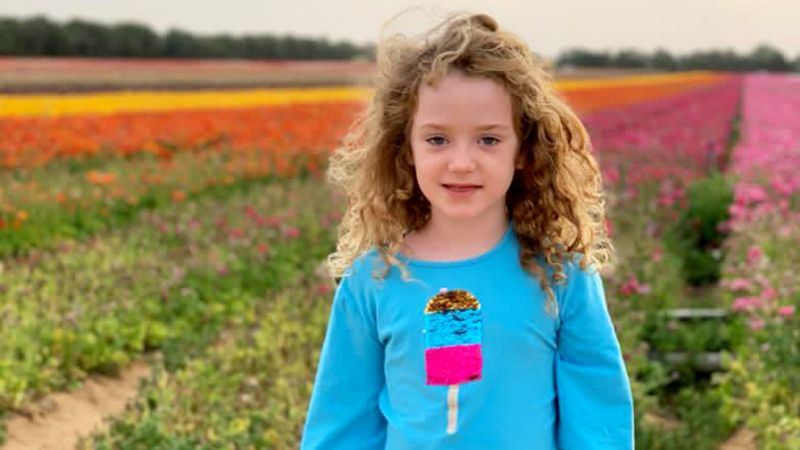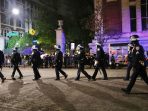Dead Sea, Israel
CNN
—
People from Be’eri sometimes used to say the reason the Israeli kibbutz was so close to the Gaza Strip was because otherwise, it would be too perfect.
“It was a joke, something we used to say because Be’eri is so beautiful. It’s the place where you want your kids to grow up. The sunset is beautiful, the fields are green, it has everything you want from a vacation spot,” Lotan Pinyan told CNN on Wednesday.
Be’eri’s proximity to Gaza, which is only a few kilometers away, means the liberal community has been a frequent target of Hamas rockets fired from the enclave – usually intercepted by Israeli defenses. The rockets were the one downside of the otherwise idyllic spot, Pinyan and his friends would say. “It’s not a joke now,” he said.
Early on Saturday morning, Hamas militants stormed Be’eri and left behind a devastation of unimaginable scale.
They murdered more than 120 of its residents, including children, and kidnapped others. They set people’s homes on fire, then killed them when they tried to escape the heat and smoke. They looted, stole and destroyed what they could.
It all started with the sirens.
The community of about 1,100 people was woken up at 6:30 a.m., when the alarm indicating an imminent rocket attack went off.
“But it was not normal. We are used to the bombing, we know what is sounds like: ‘tat – tat – tat.’ But this was different. It didn’t stop. Tat – tat – tat – tat – tat – tat – tat,” Michal Pinyan, Lotan’s wife, told CNN. “And then some 45 minutes later, we started getting messages that there are terrorists in the kibbutz,” Lotan added.
The family’s WhatsApp group was flooded with anxious messages between Michal’s parents, Amir and Mati Weiss, and her three brothers.
9:25 a.m. Mati: gunshots in the balcony
9:26 a.m. Ran: also here there are gunshots outside the shelter window
9:30 a.m. Mati: I hear voices in Arabic outside the house
9:31 a.m. Dalit: do you also hear the security forces?
9:43 a.m. Amir: dad is injured they are in the house
9:43 a.m. Ran: what do you mean?
9:44 a.m. Dalit: they came inside?
9:44 a.m. Lotan: what? talk to us
9:47 a.m. Ran: limor spoke to racheli, sending you something
9:49 a.m. Michal: mom keep writing all the time
9:52 a.m. Eddie: When????
9:57 a.m. Limor: When, what’s happening with you?
10:01 a.m. Michal: mom
10:01 a.m. Michal: Answer
10:03 a.m. Mati: save us
10:04 a.m. Mati: Save us
10:00 a.m. Michal: are you in the shelter?
10:04 a.m. Mati: dad was shot and they are throwing grenades
10:04 a.m. Mati: They blew up the safe room
10:04 a.m. Michal: inside the house?
10:04 a.m. Mati: yes
That message was the last one that came from Mati, Michal’s mother. After that, silence.
“We knew they were probably dead. But there was still a small hope that maybe they weren’t, that they were kidnapped,” Lotan said.
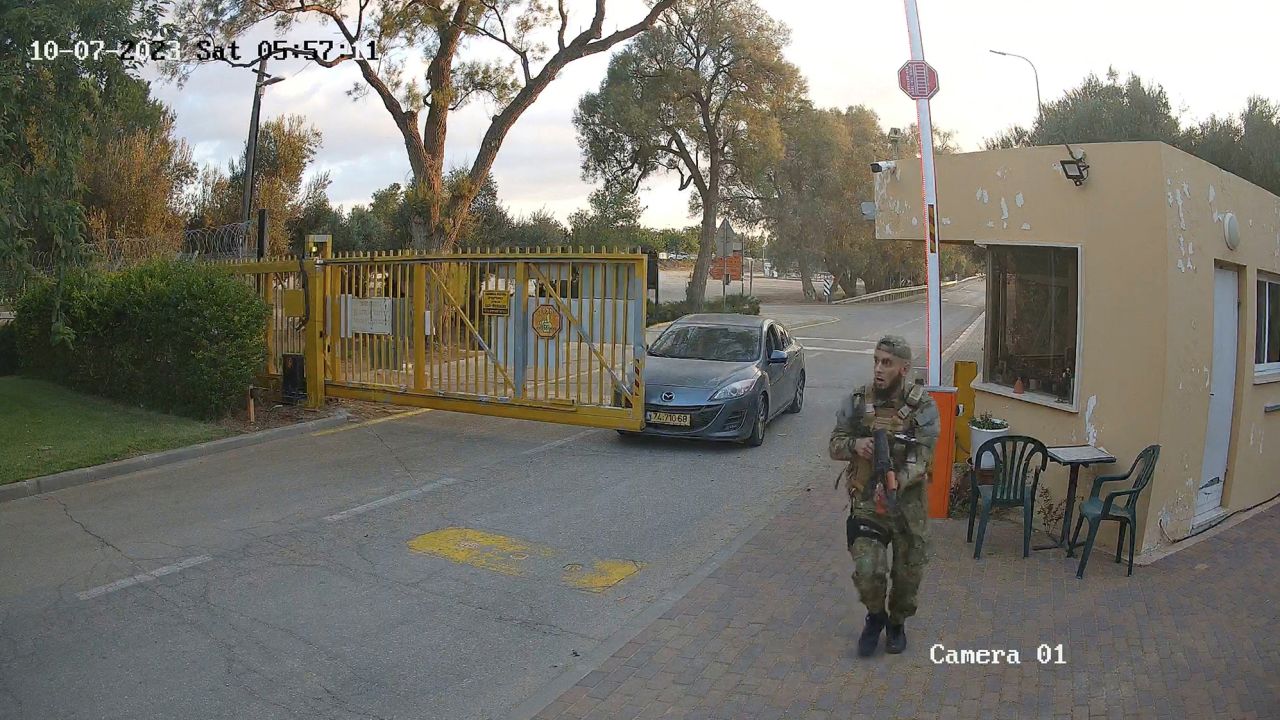
Across the kibbutz, Tom Hand was getting the same terrifying messages about terrorists breaking into his neighbors’ houses. All he could think about was his eight-year-old daughter Emily – one of the tallest in her class, with honey blond hair and pale skin that tanned in the sun, a talented dancer and singer, a fun, bright girl, he said.
Hand came to Be’eri 30 years ago as a volunteer, planning to stay a few months, and never left. After his wife, Emily’s mother, died of cancer a few years ago, he and Emily have lived here on their own.
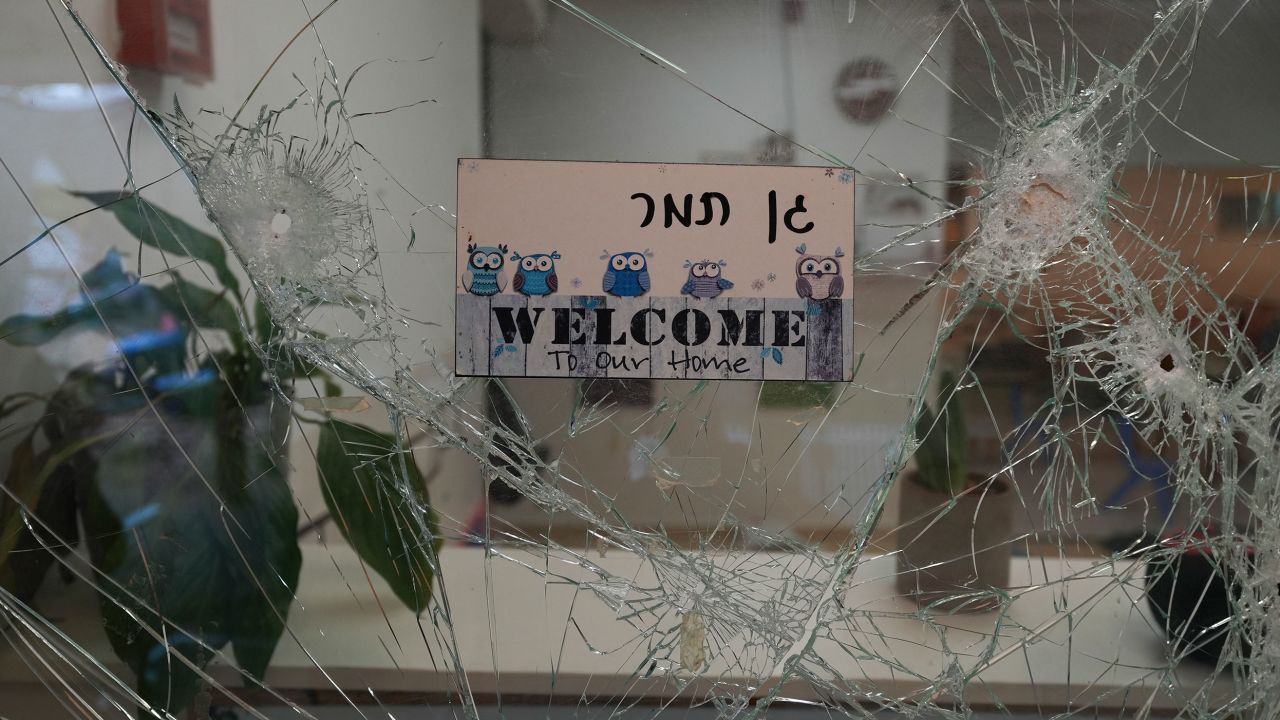
The community is close-knit; residents told CNN they eat meals together and share everything, including their salaries, which go into a communal treasury and are redistributed equally among all the families.
Politically, the kibbutz leans left. Many sees Gazans as their neighbors, Michal told CNN.
“There were people from Gaza who worked in the kibbutz and they were a part of the community, they’d bring their children to the kindergarten in the kibbutz. When they couldn’t come to work there anymore, we began collecting money from the community and there is now a fund that keeps them alive,” she said, adding that she is determined to keep sending the money to the family.
On Friday night, Emily went to her friend’s home for a sleepover. “They were having a girly night,” Hand said.
When the sirens went off at 6:30 on Saturday, Hand was not particularly worried; the alarms are not uncommon in the kibbutz. Emily was sleeping over at a friend’s house, and he was sure both children would be safe.
“Until I heard the shots. And it was already too late. If I had known … I could have maybe ran, got her, got her friend, got the mother, brought them back to my place. But by the time I realized what was happening, it was already too late,” he said.
He was not able to get in touch with them, and he was not able to go out because the kibbutz was by then overrun by swarms of heavily armed militants.
“I had to think of Emily. She already lost her mother, I couldn’t risk her losing her father too,” he said.
Meanwhile, the Pinyans, in shock from what they understood to be happening in their parents’ house, were bracing for the possibility that their home could be the terrorists’ next target.
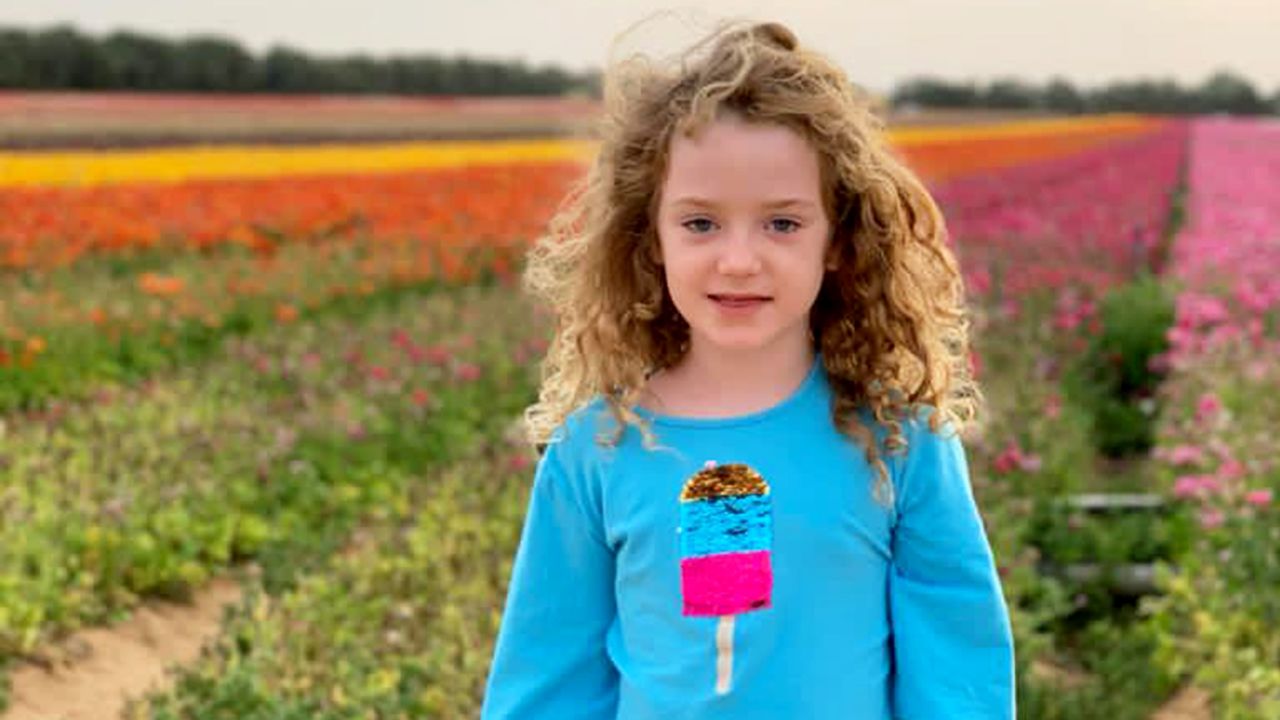
They were inside their safe room, but faced a problem. Its door is not lockable from the inside. While all Israeli homes built after 1993 must have a shelter, these safe rooms are designed to withstand a blast, not an armed incursion.
“We knew we had to keep the door closed, so we took anything we found in the safe room and wrapped it to the handle … we tied it to the window and then put a chair inside it and kept it tight with a baseball bat,” Lotan said.
He spent the next many hours sitting by the door, wrenching the bat against it, waiting for the military to come and rescue them.
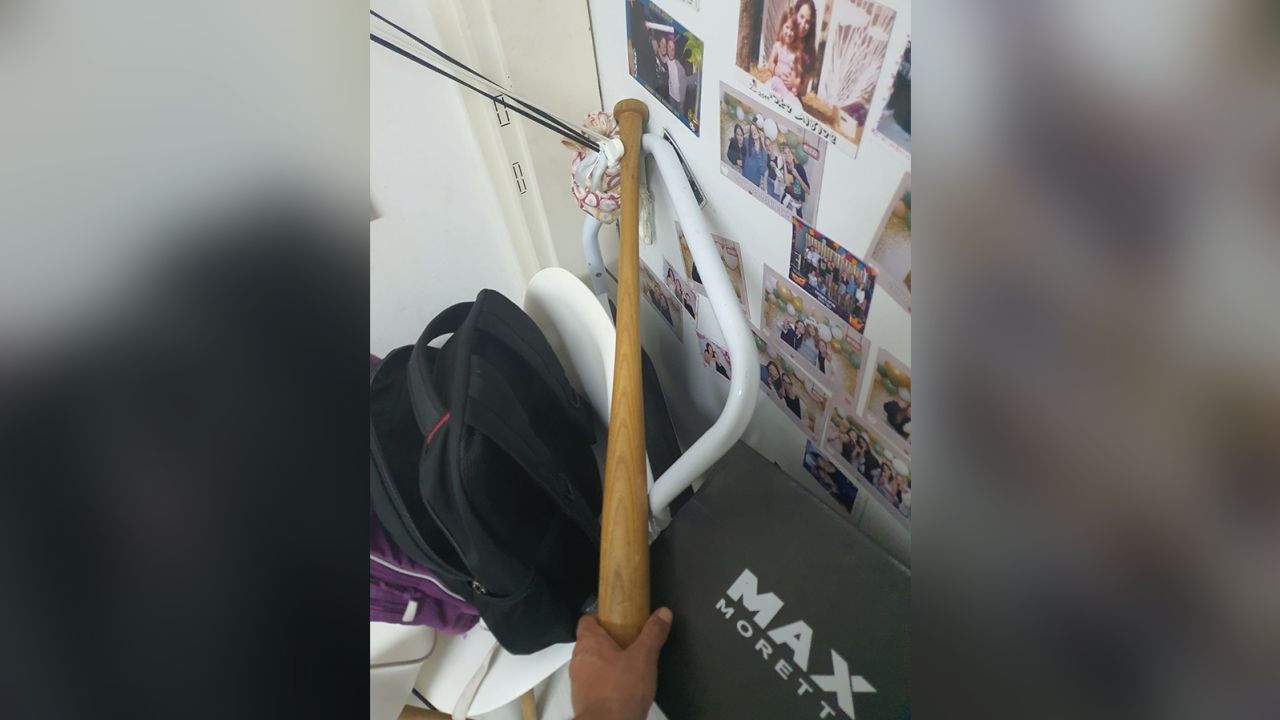
The kibbutz has its own volunteer emergency squad, about 15 people who are supposed to protect the community from danger until the army comes. With an army base just a few minutes away, everyone thought that the Israel Defense Forces would come any moment. But that did not happen.
“We were waiting for about 20 hours, with no food, no water, no toilet,” Lotan said. “And the children, they never asked for anything. Not once,” Michal added.
The IDF told CNN that it took them days of intense battle to gain control of the kibbutz. To rescue the Pinyans, 15 soldiers stormed the house, formed a tight circle around the family and walked them to a safe place – while battle still raged in the kibbutz, the family said.
As they left, Lotan said, he covered the kids’ eyes so that they wouldn’t see the dead bodies.
“We saw them, all of them, soldiers, kibbutz members and terrorists. It was like someone sprinkled sesame on a bunny, spread all over the kibbutz, everywhere we went, there were bodies,” Lotan said.
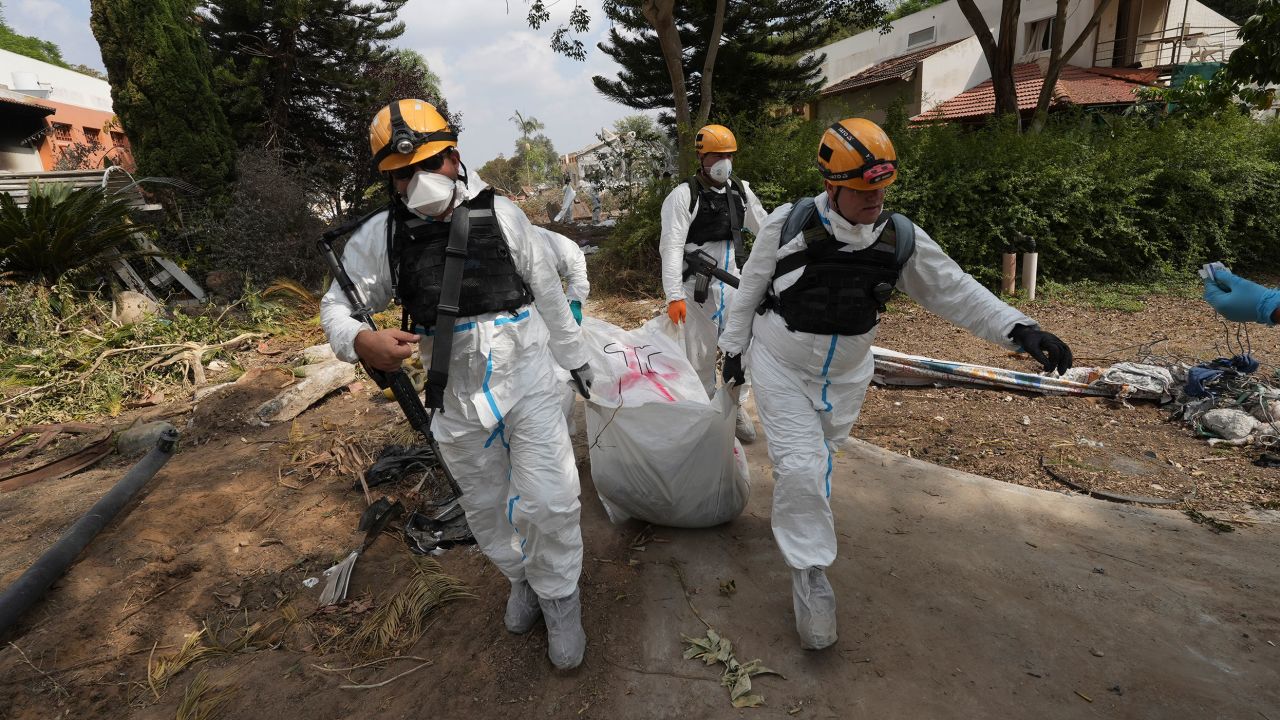
Many of those eventually rescued from Be’eri by the military were evacuated to a hotel on the shores of the Dead Sea. Among them was Tom Hand, who spent the next few days waiting to hear anything about Emily.
Then, the news came.
“Two people from the kibbutz, a team of doctors, psychiatrists, social workers … and they tell you. Softly, but quickly, because they have a lot people to get through,” he said, adding he felt relieved.
Of all the horrible possibilities, death seemed the least painful.
“She was dead. I knew she wasn’t alone, she wasn’t in Gaza, she wasn’t in a dark room filled with Christ knows how many people, pushed around … terrified every minute of every day, possibly for years to come. So death was a blessing,” he told CNN, his voice broken, tears streaming down his tired, ashen face.
“In this crazy world, here is me hoping my daughter is dead,” he said.
Many of the people rescued from Be’eri are staying in the same hotel as Hand, which means he is surrounded by love – but also constant reminders of Emily. Many of her friends who survived the massacre are at the hotel.
“Emily’s friends know that she’s not here with me. So they ask me what happened to her … they look up at me and I say I don’t know yet,” he said. “But then they see their parents hugging me, crying … kids are not stupid, even at that age, so just by seeing that I’m sure they realize.”
The community is holding onto itself, trying to keep going, Michal Pinyan said. Every few minutes, someone comes by to give her a hug, have a chat, share a memory of her parents.
She told CNN that she knows her parents have died, because their bodies were identified by people who knew them personally. However, she has been asked to provide a DNA sample for official identification, which may take some time.
She has no idea what will happen next. “Nobody talks about funerals. We don’t have a place to go to. The kibbutz is a closed army space now,” she said.
Still, she believes Be’eri will be rebuilt in some form. “We will need lots and lots and lots of strength, physical and emotional, to go back. But we will go back it’s not a question,” she said.
When their children question going back to a place where such horrors happened, the Pinyans say they must.
“We explained to them that we don’t leave the ship sinking. We need to go and repair the place, repair the community. And after that, we can decide, as a family, what we will do next,” Lotan said.
Sumber: www.cnn.com

